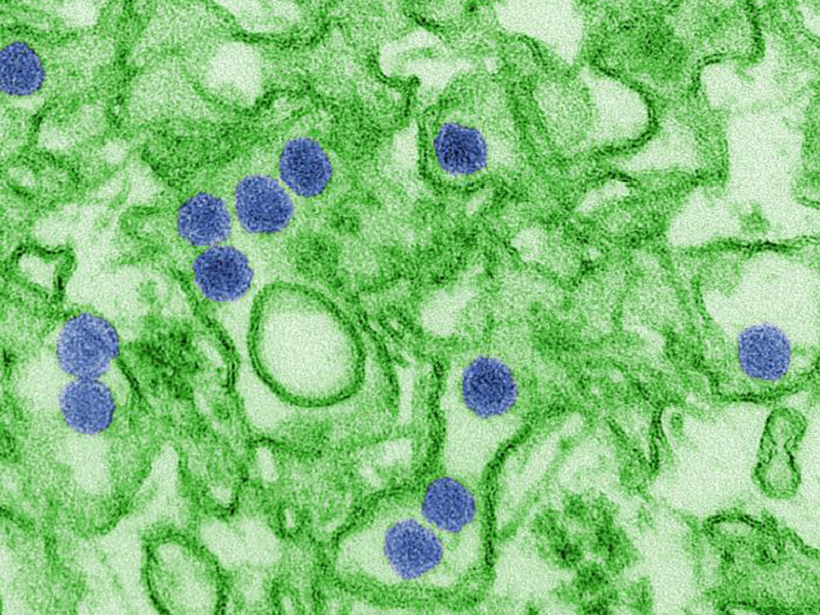The health and well-being of all of us and every other living thing on Earth are inextricably tied to the condition of Earth’s ecosystems, and many of these are changing rapidly. Recently, scholars from across disciplines have been paying increasing attention to this intersection of environmental change and human health, so much so that it has the potential to become a new scientific field [Almada et al., 2017].
As it approaches its 100th anniversary, the AGU has also signaled the critical relevance of this interdisciplinary field by adding a new open-access journal to its prestigious portfolio. As implied by the name, the new GeoHealth journal endeavors to unite Earth, ocean and climate sciences with environmental health sciences. The first issue of GeoHealth is now available and another will be out very soon.
We invite you to consider GeoHealth as a home for some of your very best papers and to recommend it to colleagues. We believe that the broad scope of the journal, the rapid review and decision processes, and relatively low publication costs make GeoHealth a very attractive option. It is also part of the wider AGU’s publications portfolio, which has a stellar reputation, as well as well-established distribution and promotion systems, and a huge built-in AGU audience of 62,000 members.
We are especially interested in papers that present evidence of how alterations in the environment, whether natural or human-caused, may affect the health and well-being of humans and other organisms
The most exciting aspect of GeoHealth is the wide-ranging topics covered. We are especially interested in papers that present evidence of how alterations in the environment, whether natural or human-caused, may affect the health and well-being of humans and other organisms. For example, we would like to receive manuscripts dealing with effects of climate change and other factors that alter terrestrial, ocean, coastal, and atmospheric conditions with resultant effects on food supply and security, human and animal health, and resilience and sustainability of communities and economies. Other topics of interest include how exposures of humans to more natural and biodiverse areas may promote health, how environmental restoration may improve health in adjacent communities, and how space flight and deep ocean exploration may affect human health.
At GeoHealth, we are also interested in papers linking microbiology to global issues of environmental and human health. Examples include, but are by no means limited to, effects of climate change and ecosystem modifications on growth, distribution, population dynamics and impacts of harmful algae and other microbes; development and implementation of new or improved methods for detecting harmful microbes; roles of microbes in digestion of organic pollutants including oil; and how environmental microbial diversity may positively or negatively affect human health.
In addition to research papers, GeoHealth will also consider timely commentaries on relevant scientific issues such as earth, ocean, space, climate and health connections, and papers that explore economic, social, and community aspects of environmental health.
The AGU focuses on science that is meaningful to society. This includes how both man and nature are changing the Earth, and what those changes may mean to all of Earth’s inhabitants, human and non-human alike. Thus, the AGU is a natural home for GeoHealth. To further build interdisciplinary connections among scientists in the Earth sciences, biological, and public health communities, the society has set up GeoHealth Connect, an online forum for interdisciplinary connections and discussions. To participate, request an invitation at connect.geohealth.org
On behalf of our founding Editor-in-Chief, Dr. Rita Colwell, and our editorial board, I invite you to submit your work to this exciting new journal. We look forward to receiving your papers and pledge to process them as rapidly as possible. Please feel free to contact me or any of the Editors at GeoHealth or the AGU publications staff if you have questions.
—Paul A. Sandifer, Center for Coastal Environmental and Human Health, College of Charleston; email: [email protected]
Citation:
Sandifer, P. A. (2017), GeoHealth: Connecting Earth, ocean, climate, and health sciences, Eos, 98, https://doi.org/10.1029/2018EO072665. Published on 01 May 2017.
Text © 2017. The authors. CC BY-NC-ND 3.0
Except where otherwise noted, images are subject to copyright. Any reuse without express permission from the copyright owner is prohibited.

